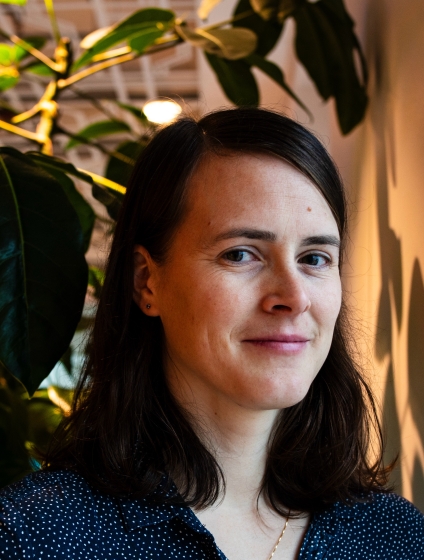Life Cycle Perspectives on Current and Future Environmental Impacts of Digitalization

As the world continues to digitalize, the life-cycle impacts of digital technologies are becoming an increasing concern. In this talk, Dr. Anna Furberg will discuss the state-of-the-art in applying LCA to digital systems to both understand their impacts and to identify ways of reducing them.
—Eric Masanet, Professor, Bren School
For access to a recording of this talk, please email events@bren.ucsb.edu
ABSTRACT
Digital technologies are changing economic sectors and governments worldwide are hoping that these technologies will bring critical solutions to societal challenges. At the same time, the production, use and waste management of these technologies are causing environmental impacts. Uncertainties are extensive, as exemplified by contradictory results in studies on the global information and communication technology (ICT) sector’s future climate impact. ICT is dependent on the use of scarce materials, but research on the resource impacts of ICT is limited. Furthermore, there are concerns that fast-growing technologies, such as artificial intelligence and internet of things, might outpace the impacts of more traditional ICT in the future. However, such technologies are not always considered in assessments. In this seminar, results from an ongoing research project named Environmental impacts of digitalization based on life cycle assessment, will be presented. The aim of this project is to analyze the environmental impacts of increased digitalization and use of ICT. Topics addressed during the seminar include, but are not limited to, reasons behind contradictory results in previous studies on the global ICT sector’s future climate impact; key aspects in influencing the energy use and climate impact of the global ICT sector; and ICT sector resource impacts.
BIO
Anna Furberg is a Postdoc at KTH Digital Futures, KTH Climate Action Center and the Department of Sustainable Development, Environmental Science and Engineering at KTH Royal Institute of Technology in Sweden. Her research focus lies on the assessment of environmental impacts of digitalization, using life cycle assessment (LCA) and life cycle thinking. During her PhD at Chalmers University of Technology, she assessed environmental, resource and human health impacts of hard materials. In 2022, she was awarded with the SETAC Europe Young Scientist Life Cycle Assessment Award, which recognizes exceptional achievements by a young scientist in the field of LCA. She also has experiences from working in, and leading, several LCA projects in Norway at the Norwegian Institute for Sustainability Research NORSUS.